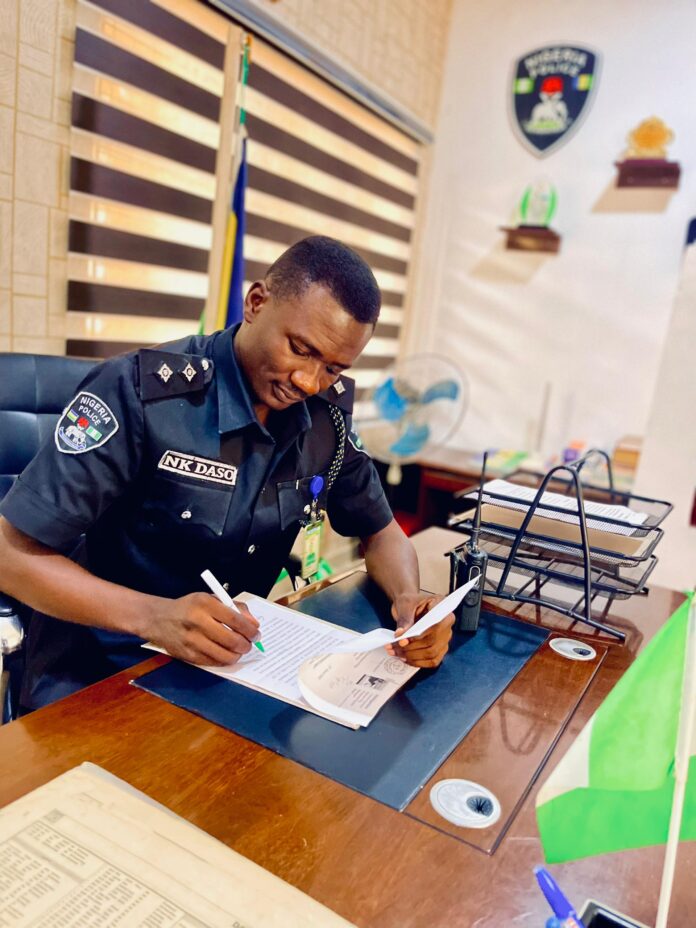The recent enforcement of tinted-glass regulations by the Nigeria Police Force has generated much public debate. Some have raised concerns about inconvenience, while others allege harassment. Yet the truth is often overlooked: “tinted glass regulation is not a new policy but a necessary security measure rooted in law and refined through technology, Status Quo remains” [CSP Benjamin Hundeyin, FPRO NPF]
The Motor Vehicles (Prohibition of Tinted Glass) Act, 1991 provides the legal basis for controlling the use of tinted windows that obscure visibility. What has changed is the modernization of the process through the Police Specialized Services Automation Project (POSSAP), a digital system that issues verifiable permits linked to the National Identification Number (NIN), biometric data, and detailed vehicle records. This initiative is designed to balance citizens’ needs with security imperatives in a nation where crimes increasingly exploit vehicles with darkened windows.
Through our Crime Frequency Data, evidence has shown that tinted vehicles have frequently been used to conceal or facilitate serious crimes. Armed robbers, kidnappers, drug traffickers, and terrorists have all taken advantage of translucent glass to hide their identities or illicit objects.
One stark example is the murder of a University of Maiduguri lecturer on April 2, 2024. After assailants whisked away his vehicle, investigators turned to CCTV footage. The car was visible, but the suspects’ faces were impossible to identify because the windows were heavily tinted, delaying justice at a critical stage [Guardian, April 2024].
Another tragedy struck on September 26, 2025, when three children died inside a dark-tinted vehicle in Borno State after accidentally locking themselves in. Passersby could not see them through the glass in time to intervene. [Punch, 26th September, 2025] “This heartbreaking case is how tinted glass can obscure not just criminals, but also victims in desperate need of rescue”.
Beyond these, countless cases link tinted vehicles to kidnappings, contraband movement, and armed robbery operations. Criminals exploit the anonymity that dark glass provides. Failing to regulate it leaves law enforcement handicapped and the public vulnerable.
The purpose of enforcement:
Contrary to misperceptions, the Police are not imposing a blanket ban on tinted vehicles. Legitimate exemptions exist. These include individuals with medical conditions such as photophobia, certain categories of VIPs, and vehicles with factory-fitted tinted glass.
The goal is accountability. Through POSSAP, owners of tinted vehicles are required to register and obtain permits. This digital process captures biometric information, NIN, and full vehicle details, creating a verifiable database that strengthens investigations. When a tinted vehicle is linked to a crime, authorities can trace its owner swiftly.
Why am i writing?
It is true that some citizens have expressed concerns about harassment or extortion during enforcement. The Nigeria Police Force has made its position clear: officers must act professionally, respect citizens’ rights, and avoid exploitation. Commands have been directed to enforce accountability mechanisms, and citizens are encouraged to report unprofessional conduct through the Complaint Response Unit (CRU) for prompt action.
Unfortunately, some critics dismiss the initiative outright, overlooking its security benefits. Negative publicity risks weakening a policy that directly enhances public safety. Regulation of tinted glass is not about restricting freedoms, it is about protecting communities.
The reality is simple, tinted vehicles without proper accountability undermine security. The tragic cases of Maiduguri, alongside countless other incidents nationwide, prove that failure to regulate tinted glass can cost lives. With POSSAP, the Nigeria Police Force is not reinventing the law but modernizing its enforcement with fairness and transparency.
As an African proverb reminds us, “Forewarned is forearmed.” By knowing who legitimately uses tinted glass and why, we remove the cover of darkness from criminals and shine light on safety for all.
ASP Nahum Kenneth DASO, ANIPR
Police Public Relations Officer
Borno State Command
4th October, 2025




